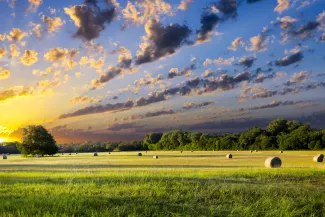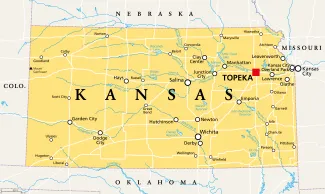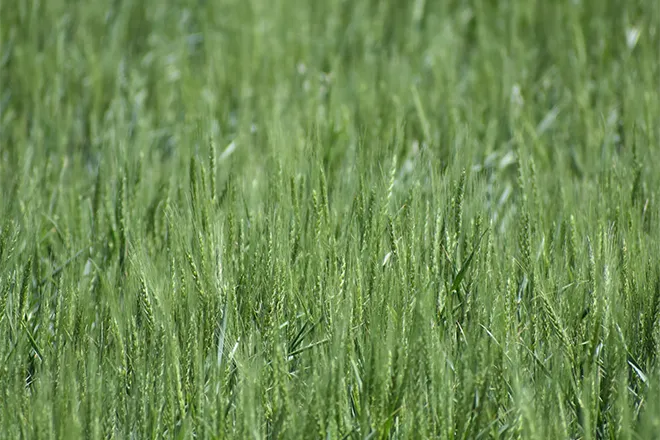
Kansas farmers await farm bill passage, end of tariff uncertainty
© iStock - Pashalgnatov
Kansas farmers are sharing opinions ranging from concerned to “pi**ed” about trade tariffs with U.S. Rep. Sharice Davids, who toured a corn farm Friday southwest of Kansas City.
“When I’m talking to folks, I hear everything from concern and a cautious approach to how to navigate this tariff climate that we’re in, all the way to folks who are really, like, really worked up and are pi**ed,” Davids said, standing on a gravel road near the Phelon family corn farm outside Garnett.
Davids began visiting a variety of ag operations in 2023, including a goat farm in Miami County, a poultry and livestock operation in Anderson County. She serves on the House Agriculture Committee and wanted to learn more about farmers and their needs, she said.
The farmers she’s met with expressed concerns about potential future impacts on the international markets for their products because of tariffs, Davids said.

© Dean_Fikar - iStock-503150251
“The time and investment it takes to get those customers in international markets, it’s not a lightswitch, and it takes a lot of work and effort and rebuilding of relationships to get those same customers back and continue to have that level of market share,” she said. “The impacts are there and people are feeling it.”
Davids spent Friday morning with Adam Phelon and his father, Raylen Phelon, discussing the farm bill and other issues while touring their fourth-generation corn operation.
“I would say that right now, the prospect of a farm bill is very much dependent on how the Congress moves forward on reconciliation,” Davids said. “We’re supposed to have a markup on the reconciliation bill next week. I think when it comes to the farm bill, we have a really strong starting place in this Congress.”
Davids said Republicans and Democrats see crop insurance as a top priority, for instance, and there is agreement on other agricultural provisions.
“I think that there’s a reason to be realistically optimistic, but similar to last Congress — it’s not the farm bill that is holding up the process of getting a farm bill done,” she said. “It’s that there are other legislative things going on before we can do the farm bill.”
Adam Phelon, who is a Kansas Soybean Association board member, said he would like to see Congress pass a farm bill but added that multiple issues are being watched by farmers.
“It’s not just tariffs — it’s trade, it’s EPA regulations, it’s the energy costs, it’s infrastructure. I mean, infrastructure is such a huge one for us,” he said. “And that goes to not just our roads around here, but that goes to rail, that goes to ships that are coming into ports, you know, everything that goes on there. All that’s important to us as farmers.”
But the priority right now is getting a farm bill, he said.
“We need updated reference prices,” he said. “We need to make sure that there’s a strong safety net, and we need to make sure the crop insurance is protected because we have weather uncertainties. Without having crop insurance and making sure there’s a strong safety net underneath us — those things can be life or death in terms of a farm and how we operate.”
Statewide insights
Kaleb Little, CEO and administrator of the Kansas Soybean Association, was at the Phelon farm for the tour. He said he is hearing similar concerns as those expressed by Adam Phelon from others in the organization.
“There’s always so much uncertainty in farming and agriculture,” Little said. “There’s so much that’s just out of their hands. And then throw in what the federal government is and isn’t doing is just another layer of uncertainty in there, whether trade or not, getting a farm bill done, or bio fuels policy,” Little said. “Farmers are always optimists, right? Because they have to be.”

© PeterHermesFurian - iStock-1352430281
A lot of association members are hanging onto what Little termed “cautious optimism” that things will come out better. Still, he said, there is angst and concern.
For soybean farmers, half of their products go to the international market, he said. There were long-term impacts from tariffs put in place during President Donald Trump’s first administration.
“The world dynamics really changed,” Little said, adding that pre-2018 tariffs, about 60% of China’s soybean market came from U.S. farmers.
“That got cut in half,” he said of the impacts of previous tariffs. “Some of the good that came out of that was soybean farmers and groups like the United Soybean or the American Soybean Association, those organizations really worked to diversify the international market. So U.S. soy is going to a lot more individual markets than it did pre-China. There are some positives there, but it’s a lot more work to maintain 50 countries as customers versus 12 or 15, especially when you talk about infrastructure and things like that.”
In his blood
Uncertainty is a part of running a farm, whether it be weather- or politics-related. But it makes planning difficult.
“The uncertainty is a huge issue,” Adam Phelon said. “So, yeah, maybe we won’t be making some bigger purchases that we planned on before, just so we can plan for the future in case, you know, things get worse before they get better.”
Even knowing the challenges, Adam Phelon never doubted that he’d continue his family’s farming tradition.
“This ground that we’re standing on today has been in my grandma’s family for around 100 years now,” he said. “Yeah, we’ve got VHS tapes of me in a crib being hauled up the side of a combine. I remember getting dropped off at youth group, and the look on my youth group teacher’s face when she saw me climb right into a tractor to go to work. Her jaw dropped. I was probably 11 or 12 years old.
“I love being out here working in the dirt, and seeing the crop grow from a seed to a final product, and taking pride in that,” Adam Phelon said.
















